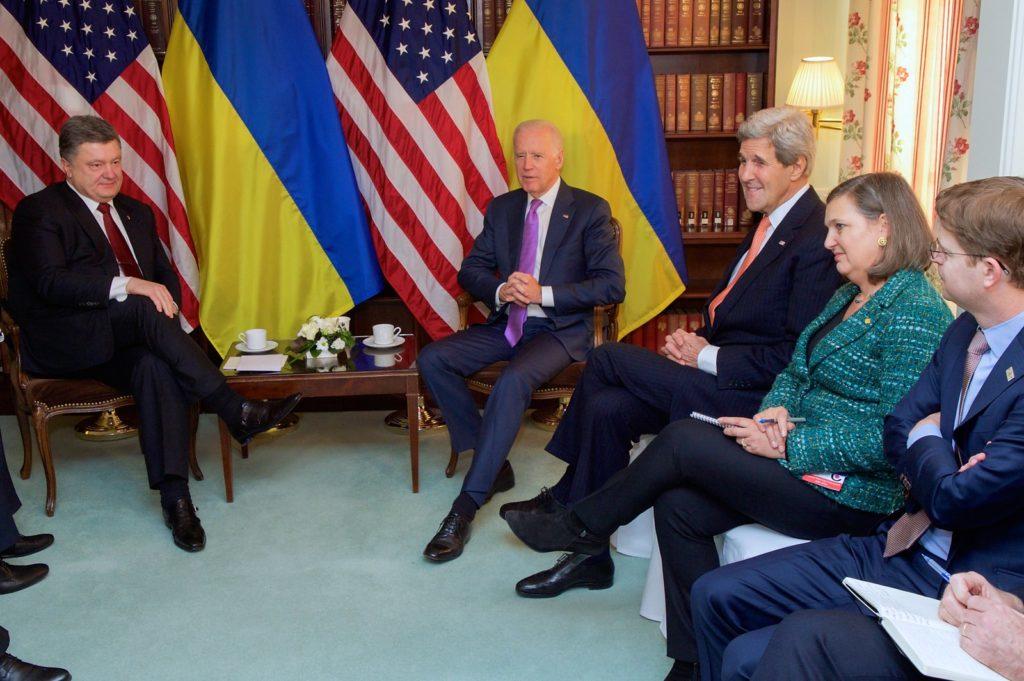There are still wide swaths of documentation kept under wraps inside government agencies like the State Department that could substantially alter the public’s understanding of what has happened in the U.S.-Ukraine relationships now at the heart of the impeachment probe.
As House Democrats mull whether to pursue impeachment articles and the GOP-led Senate braces for a possible trial, here are 12 tranches of government documents that could benefit the public if President Trump ordered them released, and the questions these memos might answer.
1. Daily intelligence reports from March through August 2019 on Ukraine’s new president Volodymyr Zelensky and his relationship with oligarchs and other key figures. What was the CIA, FBI and U.S. Treasury Department telling Trump and other agencies about Zelensky’s ties to oligarchs like Igor Kolomoisky, the former head of Privatbank, and any concerns the International Monetary Fund might have? Did any of these concerns reach the president’s daily brief (PDB) or come up in the debate around resolving Ukraine corruption and U.S. foreign aid? CNBC, Reuters and The Wall Street Journal all have done recent reporting suggesting there might have been intelligence and IMF concerns that have not been fully considered during the impeachment proceedings.
2. State Department memos detailing conversations between former U.S. Ambassador Marie Yovanovitch and former Ukrainian Prosecutor General Yuriy Lutsenko. He says Yovanovitch raised the names of Ukrainians she did not want to see prosecuted during their first meeting in 2016. She calls Lutsenko’s account fiction. But State Department officials admit the U.S. embassy in Kiev did pressure Ukrainian prosecutors not to target certain activists. Are there contemporaneous State Department memos detailing these conversations and might they illuminate the dispute between Lutsenko and Yovanovitch that has become key to the impeachment hearings?
3. State Department memos on U.S. funding given to the George Soros-backed group the Anti-Corruption Action Centre. There is documentary evidence that State provided funding to this group, that Ukrainian prosecutor sought to investigate whether that aid was spent properly and that the U.S. embassy pressured Ukraine to stand down on that investigation. How much total did State give to this group? Why was a federal agency giving money to a Soros-backed group? What did taxpayers get for their money and were they any audits to ensure the money was spent properly? Were any of Ukrainian prosecutors’ concerns legitimate?

4. The transcripts of Joe Biden’s phone calls and meetings with Ukraine’s president and prime minister from April 2014 to January 2017 when Hunter Biden served on the board of the natural gas company Burisma Holdings. Did Burisma or Hunter Biden ever come up in the calls? What did Biden say when he urged Ukraine to fire the prosecutor overseeing an investigation of Burisma? Did any Ukrainian officials ever comment on Hunter Biden’s role at the company? Was any official assessment done by U.S. agencies to justify Biden’s threat of withholding $1 billion in U.S. aid if Prosecutor General Viktor Shokin wasn’t fired?
5. All documents from an Office of Special Counsel whistleblower investigation into unusual energy transactions in Ukraine. The U.S. government’s main whistleblower office is investigating allegations from a U.S Energy Department worker of possible wrongdoing in U.S.-supported Ukrainian energy business. Who benefited in the United States and Ukraine from this alleged activity? Did Burisma gain any benefits from the conduct described by the whistleblower? OSC has concluded there is a “substantial likelihood of wrongdoing” involved in these activities.Read the rest from John Solomon HERE.
If you like what you see, please "Like" us on Facebook either here or here. Please follow us on Twitter here.


No comments:
Post a Comment